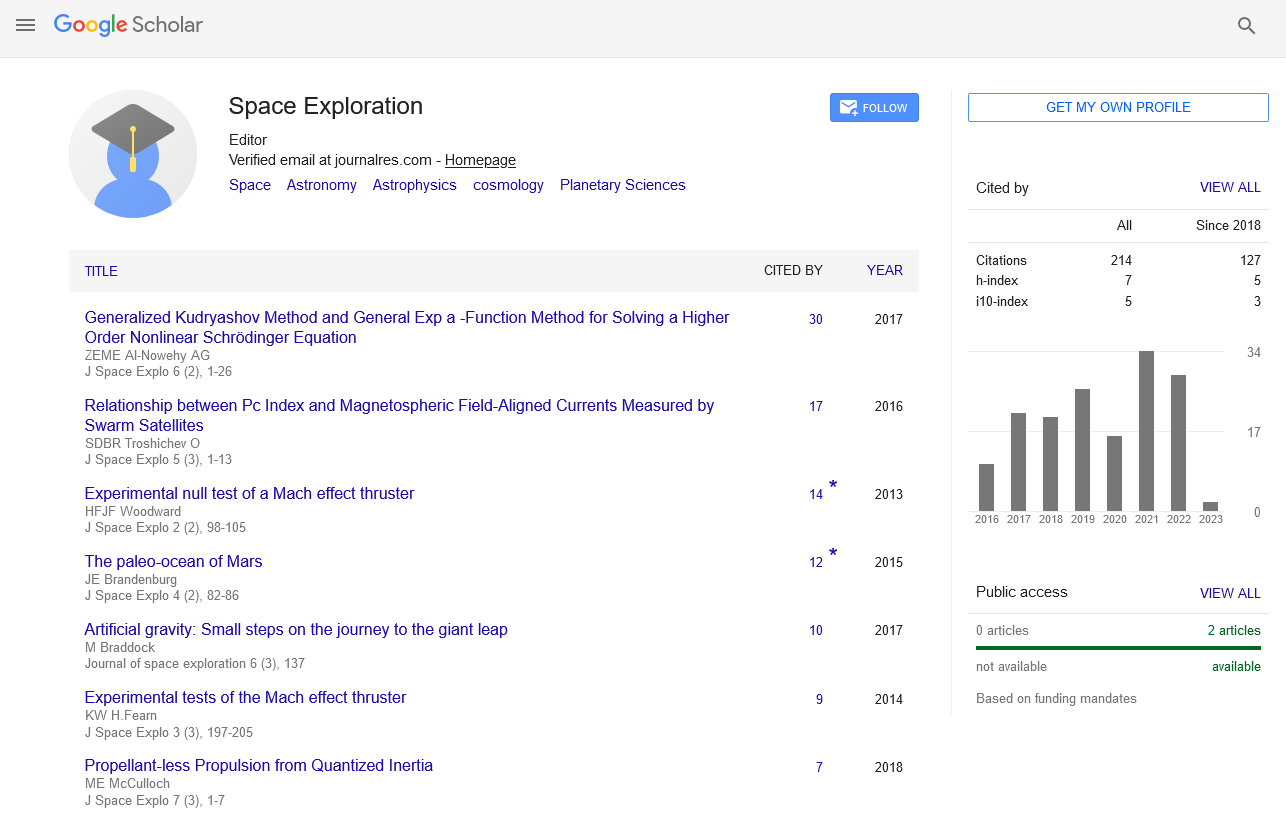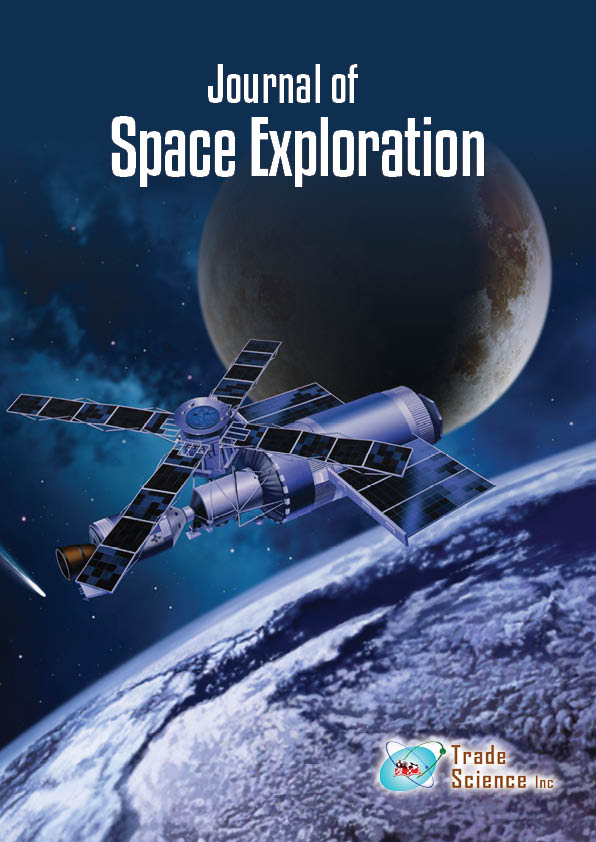Opinion Review
, Volume: 13( 3)Enhancing Space Health: The Role of Human Factors Engineering in Space Medicine
Received date: 05-March-2024, Manuscript No. tsse-24-128617; Editor assigned: 07-March-2024, PreQC No. tsse-24-128617 (PQ); Reviewed: 15-March-2024, QC No tsse-24-128617 (Q); Revised: 18-March-2024, Manuscript No. tsse-24-128617 (R); Published: 24-March2024, DOI. 10.37532/2320-6756.2024.13(3).358
Citation: Ellis M. Enhancing Space Health: The Role of Human Factors Engineering in Space Medicine, J Space Explor.2024; 13(3).358.
Abstract
Space exploration presents unique challenges to human health and performance, necessitating the integration of human factors engineering principles into space medicine. Human factors engineering focuses on optimizing the interaction between humans and their environments to enhance safety, efficiency, and well-being. In the context of space missions, human factors engineering plays a crucial role in spacecraft design, crew selection and training, medical systems, and operational procedures. This article explores the application of human factors engineering in space medicine, highlighting its contributions to astronaut health, mission success, and the future of space exploration
Keywords
Space health; Space medicine
Introduction
Space exploration represents the pinnacle of human achievement, pushing the boundaries of technology, knowledge, and human endurance. However, the harsh and unforgiving environment of space poses numerous challenges to astronaut health and performance. Human factors engineering, a multidisciplinary field focused on optimizing the interaction between humans and their environments, plays a crucial role in addressing these challenges in space medicine. By applying principles of ergonomics, cognitive psychology, and systems engineering, human factors engineering aims to enhance safety, efficiency, and well-being in space missions. In this article, we explore the application of human factors engineering in space medicine and its implications for astronaut health and mission success.
Spacecraft design and ergonomics
Discuss the importance of human-centered design principles in spacecraft architecture, layout, and equipment. Explore ergonomic considerations for spacecraft interiors, including seating arrangements, control interfaces, and accessibility of essential resources. Highlight the role of mock-up simulations, virtual reality environments, and human-in-the-loop testing in evaluating spacecraft ergonomics and identifying design improvements.
Crew selection and human performance
Examine the criteria for selecting astronauts based on psychological, physiological, and behavioural factors. Discuss the importance of crew composition, interpersonal dynamics, and team cohesion in long-duration space missions. Explore psychological assessments, personality profiling, and team-building exercises used to optimize crew performance and mitigate interpersonal conflicts.
Human-computer interaction and interface design
Explore the design considerations for spacecraft displays, controls, and user interfaces to accommodate the unique challenges of the space environment. Discuss the importance of intuitive design, clear feedback, and redundancy in critical systems to facilitate effective human-computer interaction. Highlight the development of voice-activated commands, gesture-based controls, and augmented reality interfaces to enhance usability and reduce cognitive workload for astronauts.
Medical systems and telemedicine
Examine the design and integration of medical systems and equipment onboard spacecraft to support crew health and well-being. Discuss the challenges of providing medical care in the remote and resource-limited environment of space. Explore the role of telemedicine technologies, remote monitoring devices, and diagnostic tools in enabling real-time medical support and consultation for astronauts.
Operational procedures and human error mitigation
Discuss the development of standardized procedures, checklists, and protocols to guide crew activities and mitigate the risk of human error. Explore the role of crew training, simulation-based learning, and scenario-based training exercises in preparing astronauts for emergencies and unexpected events. Highlight the importance of human factors analysis, incident reporting, and continuous improvement processes in identifying and addressing human error factors in space missions.
Future challenges and opportunities
Speculate on the future of human factors engineering in space medicine and its potential contributions to long-duration space exploration, lunar habitats, and Mars missions. Discuss emerging technologies, such as artificial intelligence, robotics, and biometric monitoring, and their implications for astronaut health and performance. Advocate for interdisciplinary collaboration, research partnerships, and knowledge sharing to advance the field of human factors engineering and ensure the safety, efficiency, and success of future space missions.
Conclusion
Human factors engineering plays a pivotal role in shaping the design, operation, and success of space missions, ensuring the health, safety, and well-being of astronauts in the challenging environment of space. By applying principles of ergonomics, psychology, and systems engineering, human factors engineers continue to innovate and optimize space medicine practices, paving the way for a future of space exploration that is safer, more efficient, and more conducive to human health and performance.

